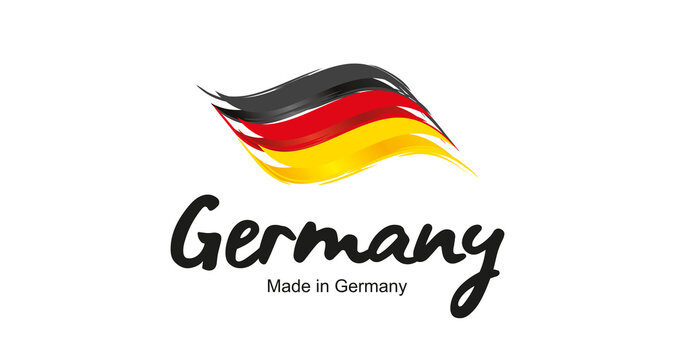Politics, the art and science of governance, has always been a critical aspect of human societies. From ancient city-states to modern nation-states, politics shapes the trajectory of nations and the lives of individuals. In contemporary times, however, politics faces unprecedented challenges and transformations. The political landscape across the globe reflects a mix of turbulence, innovation, and a demand for accountability. This article delves into the current state of politics, highlighting its challenges, opportunities, and implications for the future.
Polarization and Divisiveness
One of the most striking features of modern politics is the rise of polarization. Societies across the globe are increasingly divided along ideological, ethnic, religious, and economic lines. Political discourse has shifted from constructive debates to antagonistic confrontations, often fueled by the rise of populist leaders.
In democratic nations, polarization has led to gridlock, with parties prioritizing their agendas over national interest. In the United States, for instance, bipartisan cooperation has become rare, hampering the passage of crucial legislation. Similarly, in Europe, far-right and far-left parties exploit divisions, gaining traction among disenchanted voters.
The role of social media in exacerbating polarization cannot be ignored. Platforms designed to connect people often create echo chambers, reinforcing biases and spreading misinformation. These dynamics have led to a decrease in public trust in political institutions and a decline in the quality of governance.
The Crisis of Trust in Political Institutions
Trust is the cornerstone of effective governance, but it is eroding rapidly in many parts of the world. Citizens feel disconnected from their leaders, perceiving them as self-serving and out of touch with their concerns. Corruption scandals, nepotism, and the inability to address pressing issues such as inequality and climate change further undermine confidence in political systems.
This distrust is evident in declining voter turnout in many democracies and the rise of anti-establishment movements. Protesters from Chile to Lebanon have taken to the streets demanding accountability and reforms. While such movements highlight the power of civic engagement, they also expose the fragility of traditional political structures.
Globalization and its Discontents
Globalization has significantly influenced politics, bringing both opportunities and challenges. On one hand, it has fostered economic growth, technological advancements, and cultural exchange. On the other hand, it has exacerbated inequalities, displaced workers, and fueled resentment among those left behind.
Political leaders face the daunting task of addressing these grievances while managing the complexities of interconnected economies. Trade wars, immigration debates, and the rise of nationalism are manifestations of this tension. Countries like the UK, with its Brexit saga, illustrate the challenges of navigating global integration while preserving national identity and sovereignty.
The Role of Technology in Modern Politics
Technology has revolutionized how politics operates, offering both tools for empowerment and mechanisms for control. Social media platforms have democratized information dissemination, enabling grassroots movements to gain momentum. The Arab Spring, for instance, demonstrated how digital tools could challenge authoritarian regimes.
However, technology also poses threats to democratic processes. Cybersecurity breaches, election interference, and the spread of fake news undermine the integrity of elections and public trust. Authoritarian governments increasingly use surveillance technology to suppress dissent, raising concerns about privacy and human rights.
Climate Change: A Political Priority
Climate change is one of the most urgent issues of our time, yet political responses have often been inadequate. Despite scientific consensus on the need for immediate action, political will remains fragmented. Short-term economic interests and lobbying by powerful industries hinder the implementation of sustainable policies.
Young activists like Greta Thunberg have galvanized global attention, pressuring leaders to prioritize climate action. However, meaningful progress requires coordinated international efforts, transcending national boundaries and partisan politics.
The Rise of Youth in Politics
The current political climate has sparked a surge in youth activism, signaling a shift in the traditional power dynamics. Young people, disillusioned with the status quo, are demanding systemic change on issues ranging from climate justice to racial equality. Movements such as Fridays for Future and Black Lives Matter highlight the influence of youth in shaping political agendas.
Furthermore, an increasing number of young leaders are entering politics, challenging entrenched hierarchies. Their presence brings fresh perspectives and innovative approaches to governance, offering hope for a more inclusive and progressive political future.
The Future of Politics
Despite the challenges, there are reasons to be optimistic about the future of politics. The increasing awareness and activism among citizens indicate a growing demand for transparency and accountability. Technology, while a double-edged sword, has the potential to enhance governance through tools like blockchain for secure voting and artificial intelligence for policy analysis.
Moreover, the global nature of many challenges necessitates international cooperation. Multilateral organizations like the United Nations and regional bodies like the European Union play a crucial role in fostering collaboration. Strengthening these institutions and ensuring equitable representation is essential for addressing global issues effectively.
Conclusion
The state of politics today reflects a world in flux, grappling with complex challenges and opportunities. Polarization, distrust, and global tensions underscore the need for transformative leadership and citizen engagement. At the same time, the rise of youth movements, technological advancements, and a growing demand for justice signal a shift toward a more participatory and accountable political landscape.
The future of politics depends on the collective efforts of leaders and citizens to bridge divides, embrace innovation, and prioritize the common good. By fostering dialogue, promoting inclusivity, and addressing pressing issues, societies can navigate the uncertainties of contemporary politics and build a more equitable and sustainable world.



